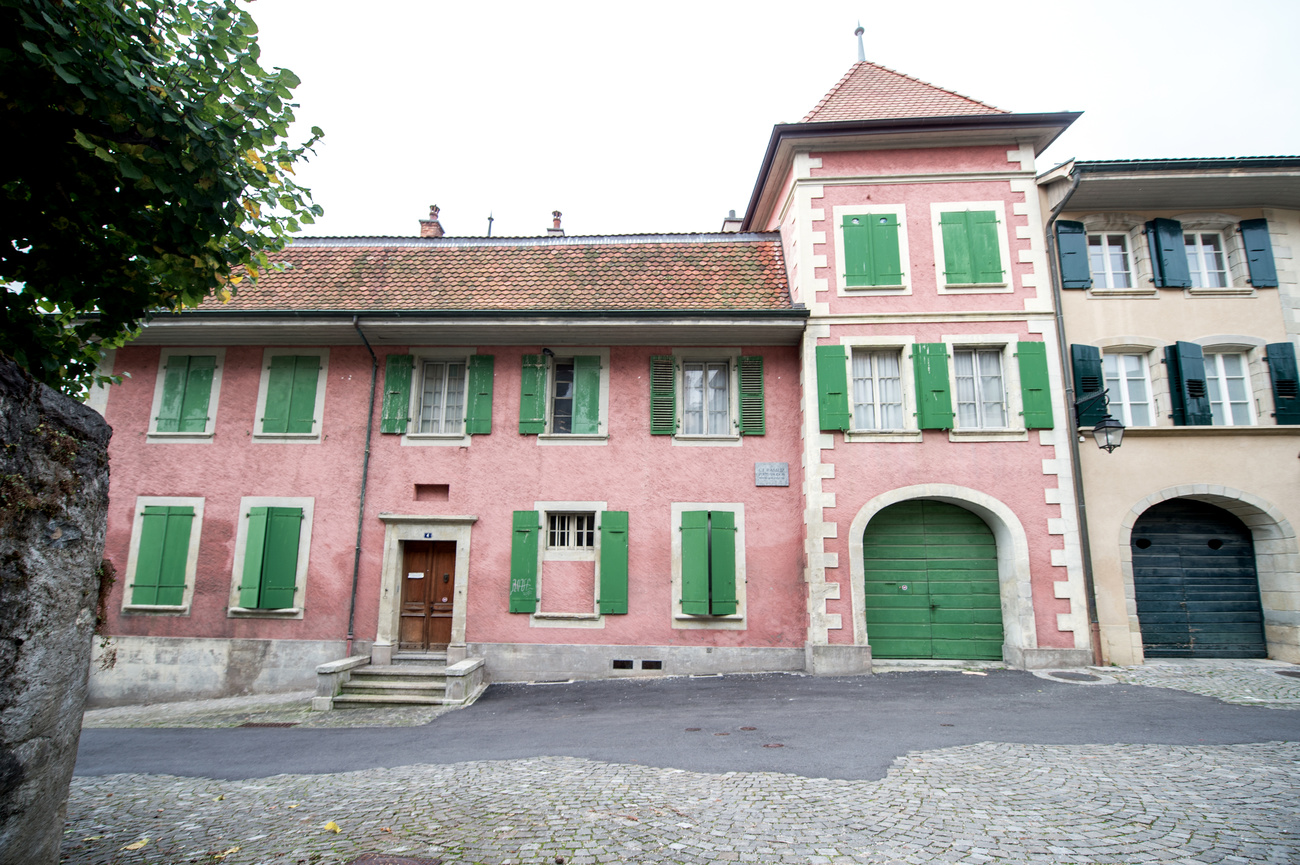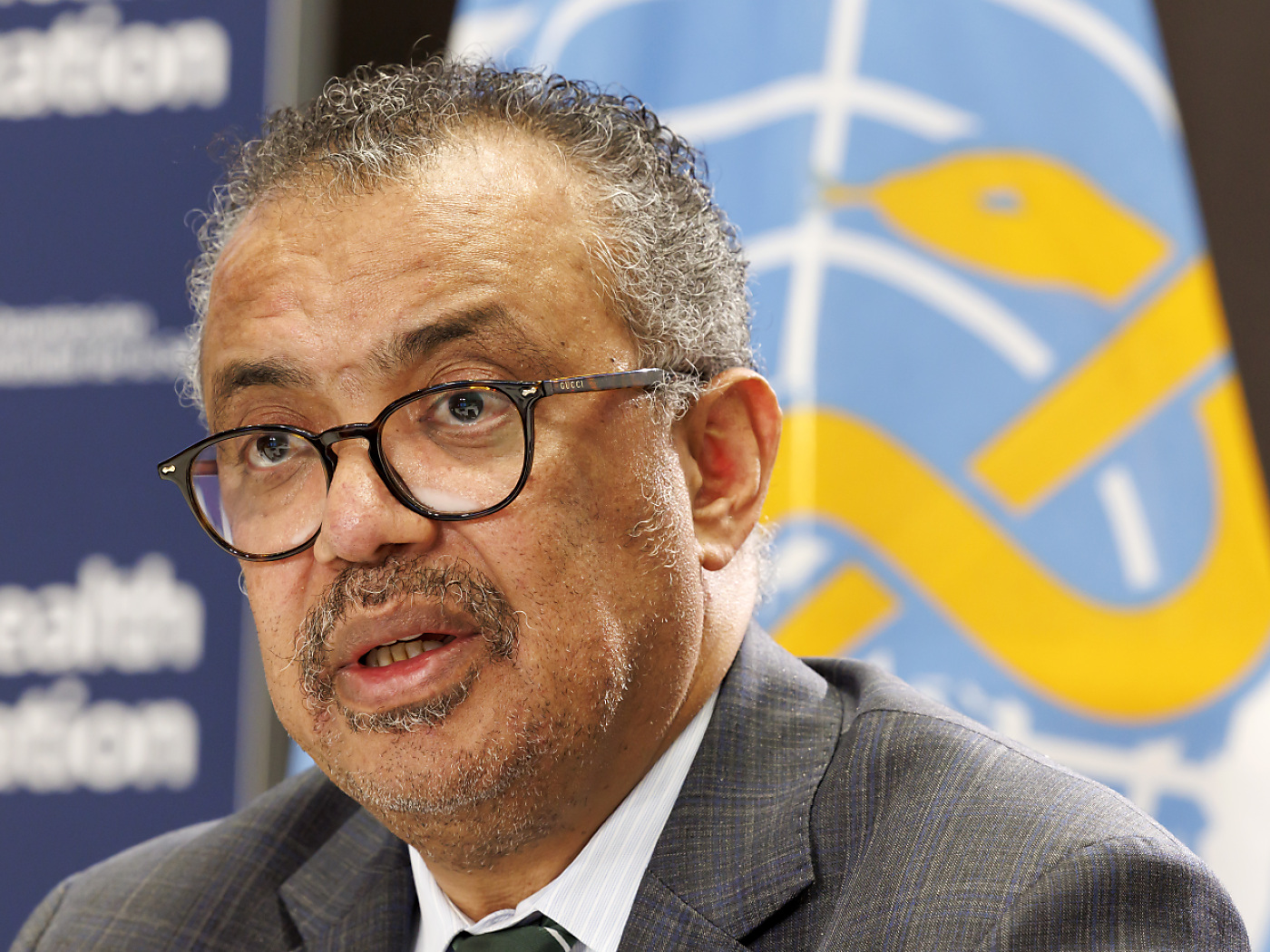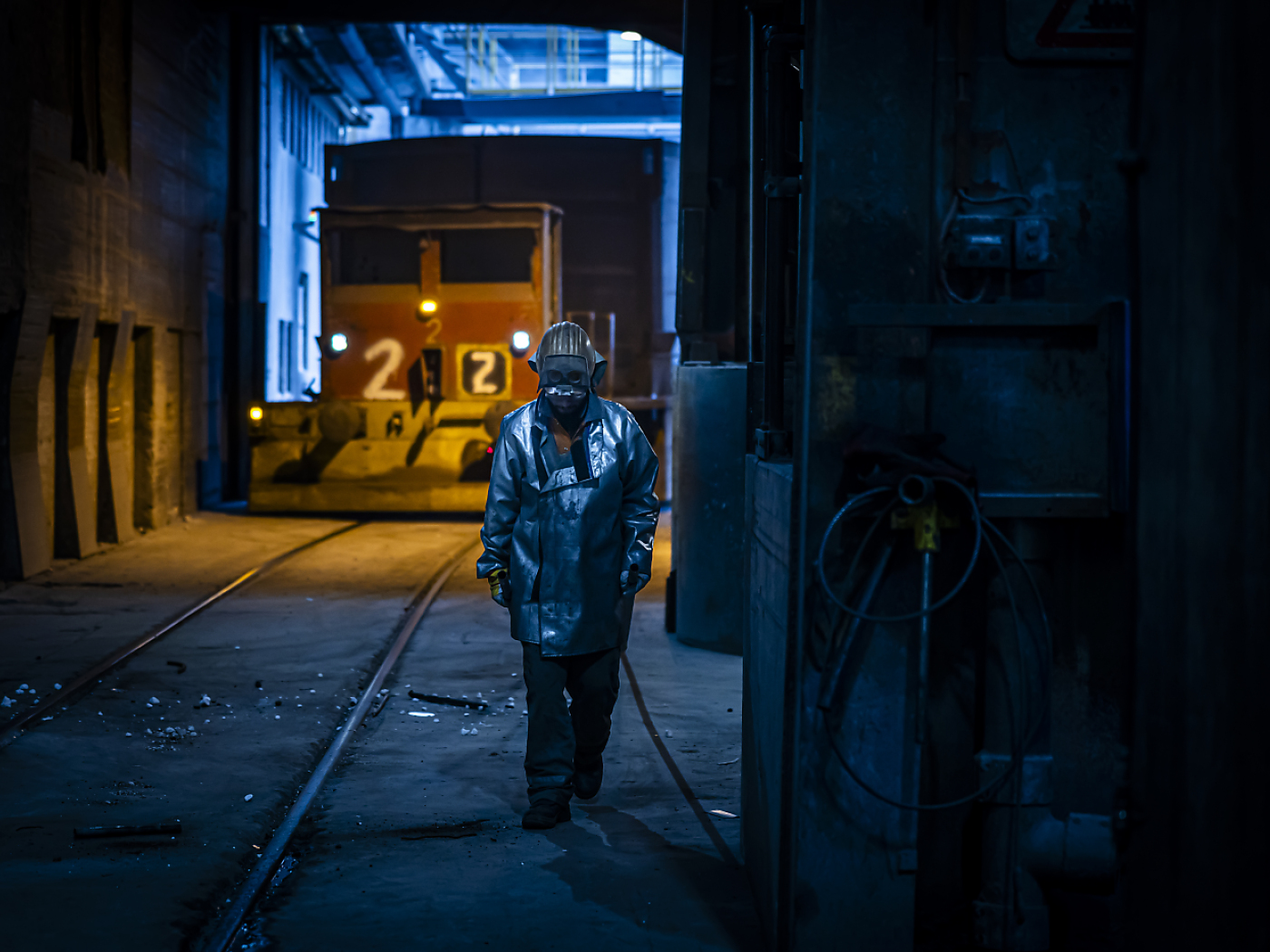Former home of author Charles Ferdinand Ramuz turned into museum

The Swiss author Charles Ferdinand Ramuz (1878-1947) now has his own museum. His life and literary work are presented in his house La Muette in Pully, canton Vaud, in western Switzerland. The inauguration is on September 23.
In the old town of Pully stands an old winegrower’s house made of pink stone with green shutters. This is where Vaud’s most famous writer and poet lived from 1930 until his death in 1947. The right tower-side part of the imposing 17th-century building has been converted into a museum, two floors and an exhibition area of 100 square metres.
The exhibition is designed around the study, which has remained unchanged since 1930. “It is intended to make Ramuz, his work and literature a contemporary, stimulating cultural place accessible to as many people as possible,” those responsible told the media on Thursday.

This room on the second floor is the centre of the exhibition, Ramuz’s desk overlooking Lake Geneva. On it lies a large digital and interactive book with a touch screen; it shows the writer’s working methods.
Grouped around it are books, manuscripts, letters, archive photos and historical objects, such as the blue and yellow packets of Celtique cigarettes that Ramuz smoked. Also on display is the author’s library, which shows what he read.
+ Canton Vaud wants to raise profile and increase appeal
Also popular in German-speaking Switzerland
On the ground floor of the house, visitors can familiarise themselves with the author’s work, with his novels Derborence (When the Mountain Fell), Aline, La Grande Peurdans la montagne (Terror on the Mountain) or Si le soleil ne revenait pas… (As if the Sun were Never to Return). The latter was published in German for the first time last May and has made Ramuz popular in German-speaking Switzerland. The other novels mentioned have also been translated into German.
An exhibition circuit, a website and a programme of about one event per month are planned. A visit should last about 50 minutes, guided by an audio guide. Like an “acoustic documentary”, the tour will be divided into seven chapters focusing on four thematic areas: Ramuz’s universe, his texts, the man and the writer.
This news story has been written and carefully fact-checked by an external editorial team. At SWI swissinfo.ch we select the most relevant news for an international audience and use automatic translation tools such as DeepL to translate it into English. Providing you with automatically translated news gives us the time to write more in-depth articles. You can find them here.
If you want to know more about how we work, have a look here, and if you have feedback on this news story please write to english@swissinfo.ch.

In compliance with the JTI standards
More: SWI swissinfo.ch certified by the Journalism Trust Initiative




















You can find an overview of ongoing debates with our journalists here . Please join us!
If you want to start a conversation about a topic raised in this article or want to report factual errors, email us at english@swissinfo.ch.